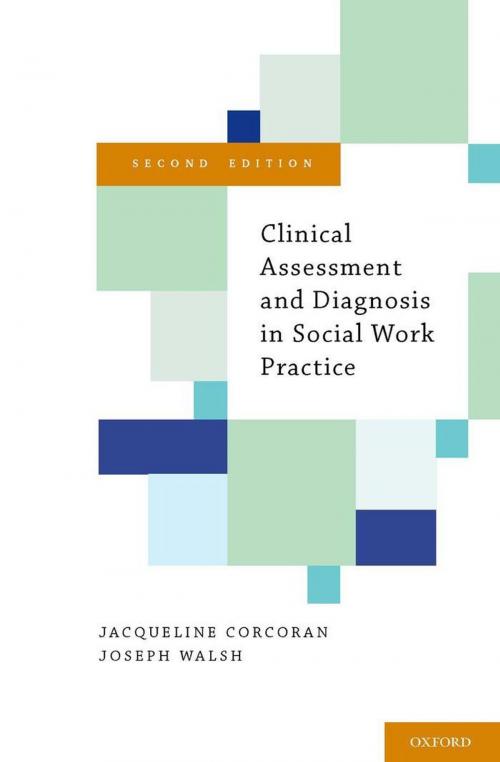Clinical Assessment and Diagnosis in Social Work Practice
Nonfiction, Social & Cultural Studies, Social Science, Social Work, Health & Well Being, Psychology| Author: | Jacqueline Corcoran, Joseph Walsh | ISBN: | 9780199889662 |
| Publisher: | Oxford University Press | Publication: | March 1, 2010 |
| Imprint: | Oxford University Press | Language: | English |
| Author: | Jacqueline Corcoran, Joseph Walsh |
| ISBN: | 9780199889662 |
| Publisher: | Oxford University Press |
| Publication: | March 1, 2010 |
| Imprint: | Oxford University Press |
| Language: | English |
This revolutionary, user-friendly textbook not only guides social workers in developing competence in the DSM system of diagnosis, it also assists them in staying attuned during client assessment to social work values and principles: a focus on client strengths, concern for the worth and dignity of individuals, appreciation of environmental influences on behavior, and commitment to evidence-informed practice. The authors, seasoned practitioner-scholars, provide an in-depth exploration of fourteen major mental disorders that social workers commonly see in practice, including anxiety disorders, depression, bipolar disorder, and schizophrenia. They skillfully integrate several perspectives in order to help practitioners meet the challenges they will face in client assessment. A risk and resilience framework helps social workers understand environmental influences on the emergence of mental disorders and the strengths that clients already possess. Social workers will also learn to apply critical thinking to the DSM when it is inconsistent with social work values and principles. Finally, the authors catalog the latest evidence-based assessment instruments and treatments for each disorder so that social workers can intervene efficiently and effectively, using the best resources available. Students and practitioners alike will appreciate the wealth of case examples, evidence-based assessment instruments, treatment plans, and new social diversity sections that make this an essential guide to the assessment and diagnostic processes in social work practice.
This revolutionary, user-friendly textbook not only guides social workers in developing competence in the DSM system of diagnosis, it also assists them in staying attuned during client assessment to social work values and principles: a focus on client strengths, concern for the worth and dignity of individuals, appreciation of environmental influences on behavior, and commitment to evidence-informed practice. The authors, seasoned practitioner-scholars, provide an in-depth exploration of fourteen major mental disorders that social workers commonly see in practice, including anxiety disorders, depression, bipolar disorder, and schizophrenia. They skillfully integrate several perspectives in order to help practitioners meet the challenges they will face in client assessment. A risk and resilience framework helps social workers understand environmental influences on the emergence of mental disorders and the strengths that clients already possess. Social workers will also learn to apply critical thinking to the DSM when it is inconsistent with social work values and principles. Finally, the authors catalog the latest evidence-based assessment instruments and treatments for each disorder so that social workers can intervene efficiently and effectively, using the best resources available. Students and practitioners alike will appreciate the wealth of case examples, evidence-based assessment instruments, treatment plans, and new social diversity sections that make this an essential guide to the assessment and diagnostic processes in social work practice.















